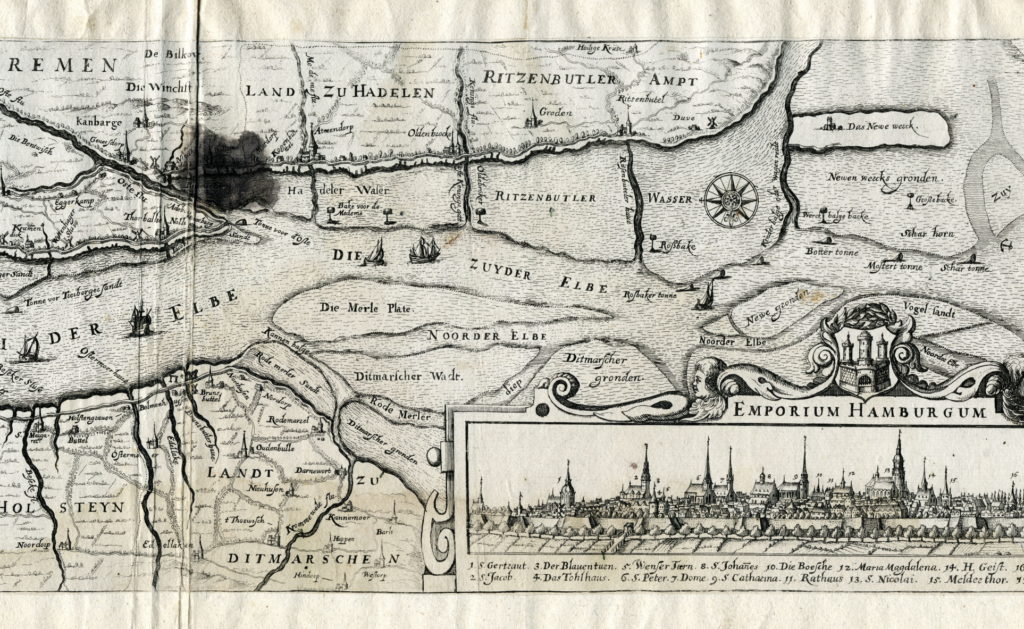
Hamburg (Germany)
Between Beach Rights and Beach Robbery – the Lower Elbe as a Conflict Area in the 13th and 14th Centuries
Stefan Brenner (University of Kiel)
The Lower Elbe region presents itself as a sui generis conflict region in the late Middle Ages. Despite all the imperial and papal disqualifications of exercising the right of shipwreck (ius naufragii) as a criminal offence, many stakeholders in the use of the Lower Elbe clung to this custom, much to the chagrin of the surrounding Hanseatic towns. Apart from the looting of washed-up shipwrecks or the appropriation of flotsam and jetsam, also raids on stranded or failed merchants took place frequently. The result were numerous, sometimes violent disputes, especially between the quasi-autonomous parish confederations of Dithmarschen, Hadeln and Wursten at the mouth of the Elbe on the one hand and the aspiring Hanseatic City of Hamburg on the other. The special focus of the lecture will now be on the exceptionally conflict-ridden relationship between Dithmarschen and the Hanseatic City of Hamburg along the 13th und 14th centuries: In 1265, a bilateral treaty was concluded for the first time, in which the Dithmarscher Landesgemeinde declared that it no longer wished to harm Hamburg merchants or traders approaching the city. In order to avoid future conflicts and to be able to settle them amicably, arbitration proceedings should henceforth be convened. The various subsequent treaties, in which not only the Landesgemeinde, but also the relevant parishes and individual families, and finally even the nominal liege lord of Dithmarschen, the Archbishop of Bremen, were involved, clearly show that a quick peaceful settlement of this event horizon was not possible. Well into the 15th century, conflicts ranging to outright military confrontations arose in the context of the forementioned exercise of beach rights and the subsequent retaliatory actions between the two protagonists. On the basis of this regional case study, the lecture would like to address a series of exemplary questions concerning the exercise of beach rights and finally its pushback: What motivations can be traced behind this stubborn adherence to this practice? Why did Hamburg not succeed in reaching a peaceful settlement of these points of contention in Dithmarschen on the basis of treaties and how did the city react to this circumstance? And finally: How could this horizon of conflict finally be settled?